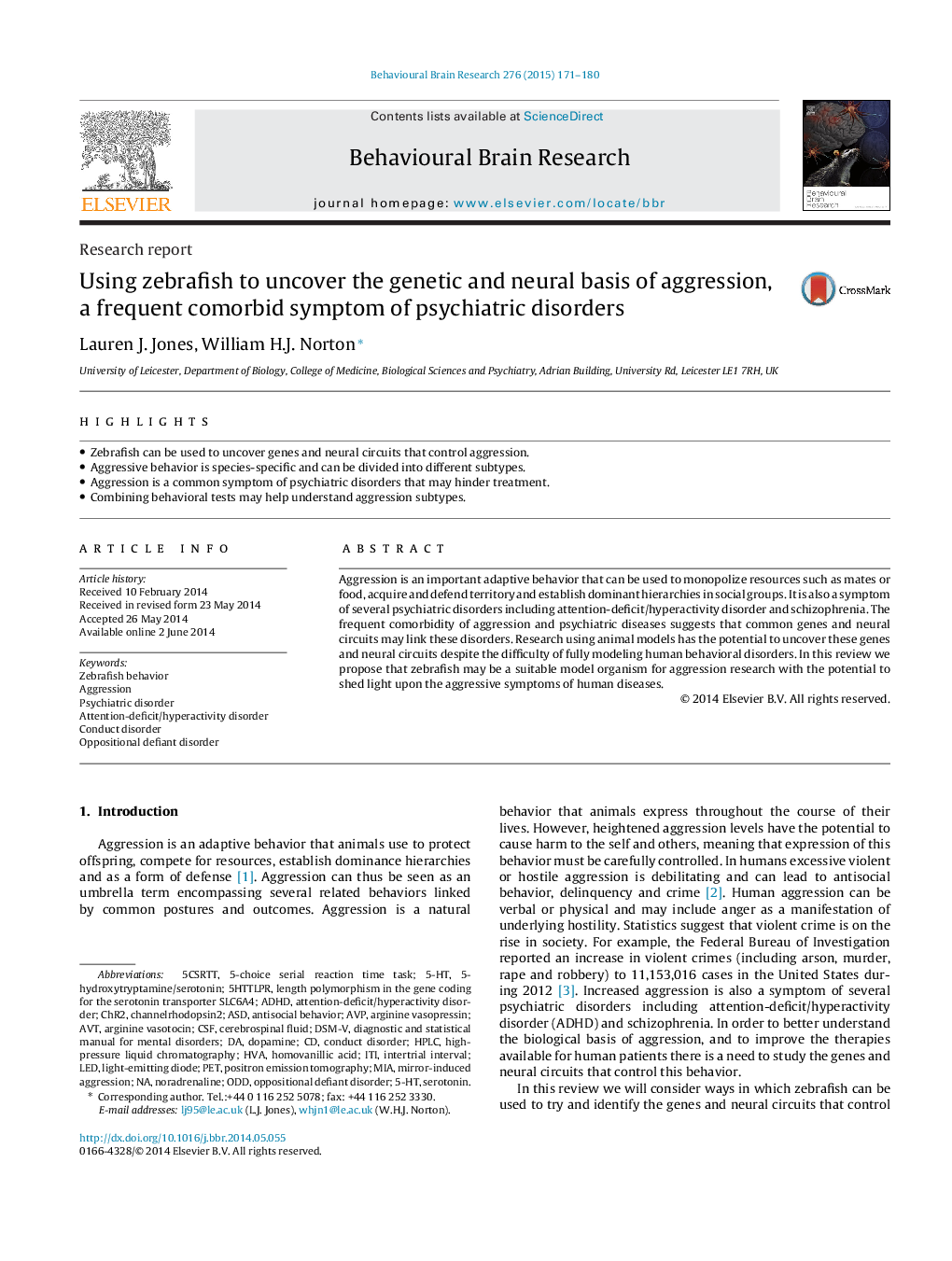| کد مقاله | کد نشریه | سال انتشار | مقاله انگلیسی | نسخه تمام متن |
|---|---|---|---|---|
| 6257452 | 1612956 | 2015 | 10 صفحه PDF | دانلود رایگان |
- Zebrafish can be used to uncover genes and neural circuits that control aggression.
- Aggressive behavior is species-specific and can be divided into different subtypes.
- Aggression is a common symptom of psychiatric disorders that may hinder treatment.
- Combining behavioral tests may help understand aggression subtypes.
Aggression is an important adaptive behavior that can be used to monopolize resources such as mates or food, acquire and defend territory and establish dominant hierarchies in social groups. It is also a symptom of several psychiatric disorders including attention-deficit/hyperactivity disorder and schizophrenia. The frequent comorbidity of aggression and psychiatric diseases suggests that common genes and neural circuits may link these disorders. Research using animal models has the potential to uncover these genes and neural circuits despite the difficulty of fully modeling human behavioral disorders. In this review we propose that zebrafish may be a suitable model organism for aggression research with the potential to shed light upon the aggressive symptoms of human diseases.
Journal: Behavioural Brain Research - Volume 276, 1 January 2015, Pages 171-180
